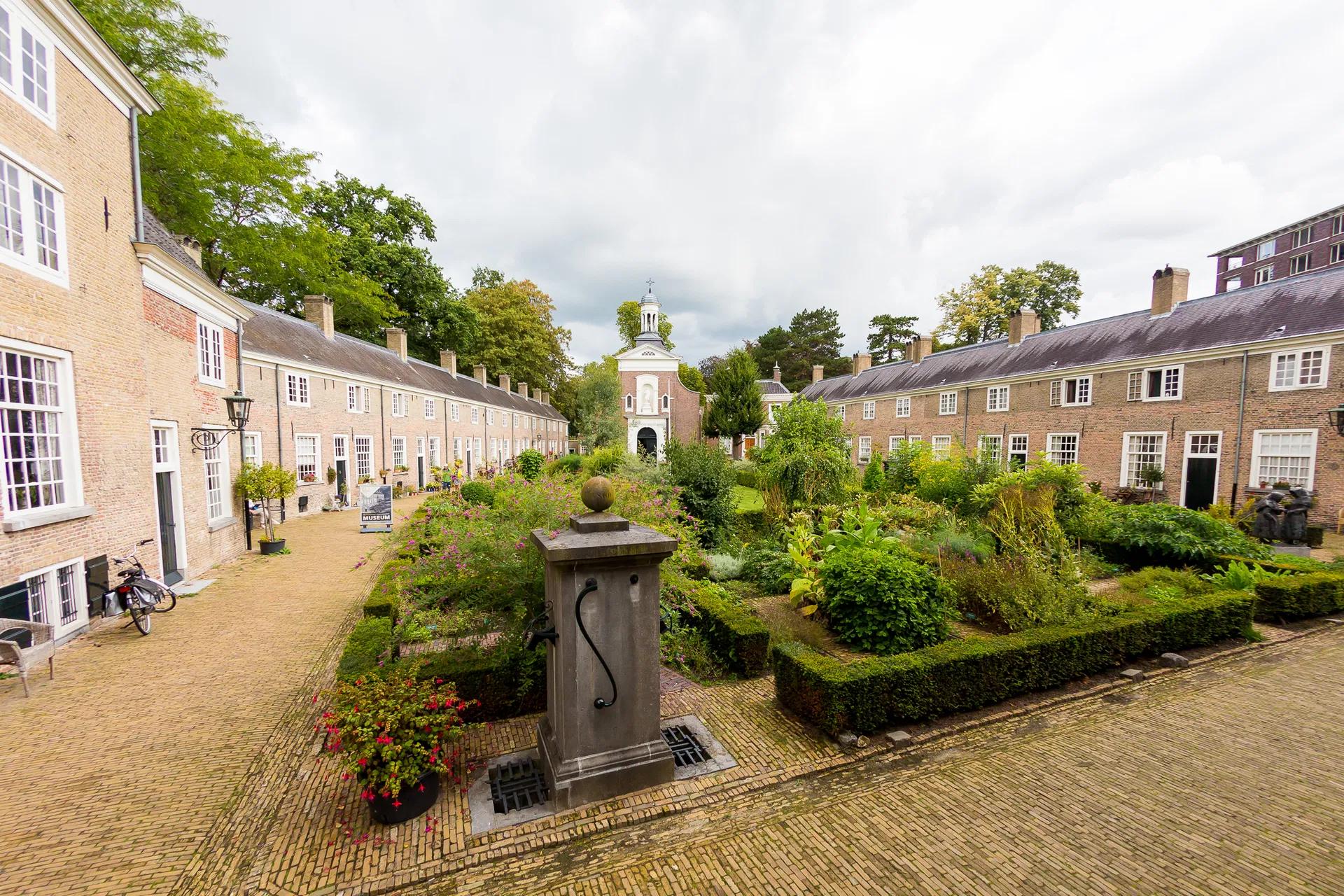Begijnhof (Beguinage)
Historical connection with the House of Nassau.
The history of the Beguine community in Breda dates back 750 years. Originally, the courtyard was located near Breda Castle, but in the sixteenth century, Hendrik III van Nassau had it relocated when he wanted to expand the castle and its garden. The beguines reluctantly moved to their current location in 1535. In exchange, Hendrik III promised them that they would always remain under the protection of the Nassau family. As a result, the Beguinage still has a special connection to our Royal Family.
In the mid-nineteenth century, the Beguinage was expanded with nine small houses. In this so-called New Court, there is a statue of Johanna van Polanen.
Herb Garden
At the heart of the Begijnhof lies a well-maintained garden, with 300 different types of herbs. The herbs are labelled with their Latin and Dutch names. The beguines used the herbs in caring for the sick. The courtyard, the church, and the herb garden of the Begijnhof can be visited free of charge.
You can learn about the life of the beguines in the Begijnhof Museum, located in one of the cottages. The Miniatures and Dollhouses Museum is located in the Gatehouse, both definitely worth a visit!
Quiet Area
In the Netherlands, there used to be 38 beguinages. Virtually all of these beguinages were closed or extinguished after the Reformation. Besides Amsterdam, the Beguinage in Breda remained preserved until well into the second half of the twentieth century. The last beguine, Miss Frijters, passed away in 1990.
The sixteenth-century beguinage houses are still inhabited by single women who require respect for their living environment and the silence in the courtyard.
